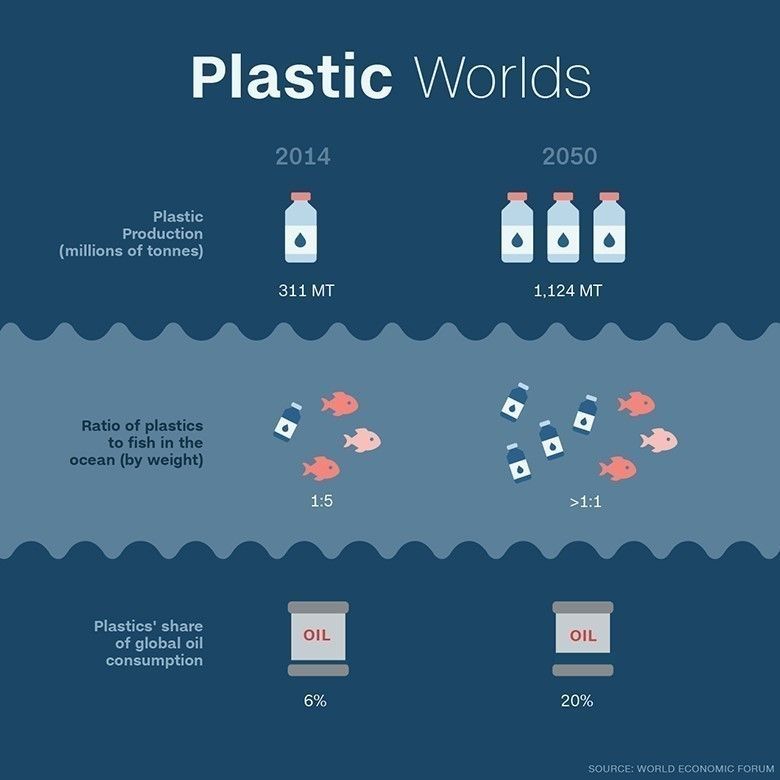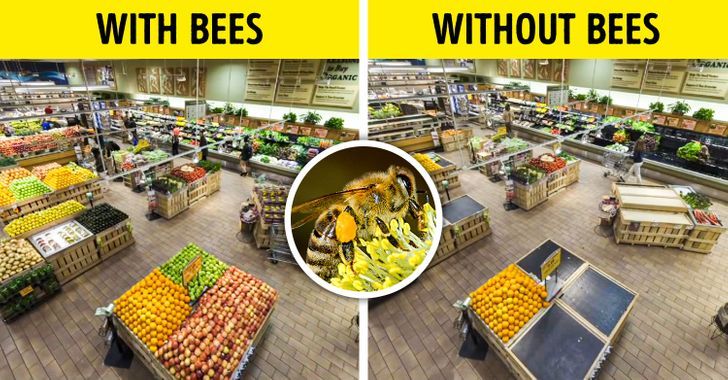Is Plastic Pollution Distracting us from Larger Environmental Issues?

When Sustainable Jungle released an article addressing this question, it inspired us to do our research because plastic is the worst thing ever for the planet, right?
Well, yes, and no.
Plastic has received the blame for numerous environmental and animal welfare issues. Between photos of turtles with plastic straws stuck in their nose, and whales washing up on the beach with bellies full of plastic, it’s understandable that plastic is notoriously hated.
When these images are visible alongside jaw-dropping statistics like the World Economic Forum’s (WEF) projection that by 2050, plastic will outweigh fish, it’s easy to see why people hate plastic.

Although there’s been a lot of significant change happening because of our mutual hate of plastic. Many countries are banning single-use plastic bags, restaurants are offering paper straws instead of plastic, and eco-friendly alternatives for plastic are emerging.
However, plastic pollution is only the tip of the iceberg of countless environmental issues.
There are much more immediately threatening issues than plastic pollution, such as climate change and its relation to biodiversity loss.
The real issues
The Intergovernmental Panel on Climate Change (IPCC) in 2018 warned us that we must take drastic action to limit global warming by 1.5 degrees Celsius. From this news, people began talking about what we can do to reduce our carbon footprints and limit plastic pollution collectively, which are all great topics of discussion!
But why weren’t we discussing the most significant issue here - climate change as a result of global warming?
Scientists believe it is mainly because our carbon footprints or how much plastic we use are things we can actively control.
It’s common for people to believe that they can’t do anything about climate change because it seems like too large of a task - when that is the farthest thing from the truth.
Let’s dig into some science and then I’ll tell you why you actually can do something about climate change.
Offset your carbon with OurForest
Plant trees for free with your browser.Allow me to introduce you to “Planetary Boundaries”
The Stockholm Resilience Center in partnership with the Australian National University introduced the concept of planetary boundaries in 2009.
The planetary boundaries quantify safe human and environmental interactions, as seen below:
Unfortunately, we have exceeded three out of nine of these planetary boundaries.
The three boundaries we have far exceeded:
- Nitrogen cycle
- Biodiversity loss
- Climate change
I’m going to focus on biodiversity loss and climate change because they are the core planetary boundaries and have extreme consequences for all living things when exceeded.
We're in a danger zone.
What this means for biodiversity
We are losing Earth's biodiversity at an alarming rate, including plant and animal species and specific habitats and ecosystems.
The most alarming loss of biodiversity is in insect species. They are well on their way to extinction, threatening the "catastrophic collapse of nature's ecosystems."
More than 40% of the world's insects are declining, and their rate of extinction is eight times faster than that of mammals, birds and reptiles. The total mass of insects is falling by a steep 2.5% a year.
Insects keep all life and ecosystems in check. Researchers say they are "essential" for the proper functioning of all ecosystems, as food for other creatures, pollinators and recyclers of nutrients.
Their decline is most prominent in areas where there is agricultural development due to chemical and pesticide treatments to keep pests away from crops.
So, what happens to our world without them?

Not only are insects essential for aerating our soil and pollinating plants that we need for survival, but they are also at the bottom of the food chain, with many birds, reptiles, amphibians, and fish relying on them for food.
In an interview with the Guardian, Edward O Wilson, a Biologist at Harvard University, warned that "If all humankind were to disappear, the world would regenerate back to the rich state of equilibrium that existed 10,000 years ago. If insects were to vanish, the environment would collapse into chaos."
What this means for climate change
Climate change is a global pattern of unusual temperatures, increased extreme weather events, rising sea levels, and glacial melting.
The human population predominantly causes climate change.
We are emitting far too much CO2 (greenhouse gases) into our atmosphere every year that traps heat in the Earth's atmosphere, which increases the temperature of the planet.
Climate change drives animals out of their natural habitats, causes extreme weather conditions such as the forest fires we've seen in California and melts our polar ice caps.
Although awareness of plastic pollution is excellent and is a serious issue we need to attend to, as you can see, there are some other pressing matters that we must find a way to stop. And fast.
After all, plastic pollution won't matter if our Earth becomes too hot or if we lose the biodiversity that we all depend on.
Hope is not lost. Here are some things you do to create change:
#1. Limit your use of fossil fuels
We can start by reducing our carbon emissions within our economy and eliminating our reliance on fossil fuels. 80% of our global energy still comes from fossil fuels, but with the rise of renewable energy, this is slowly changing.
Burning fossil fuels accounts for 75% of CO2 emissions, which leads to nitrogen flow increases and climate change.
Start by driving less and walking more. Or by introducing renewable energy into small parts of your home. We will get there!
#2. Use your vote
When election day rolls around, be sure to use your vote wisely. Vote for politicians who are aware of the climate crisis and who are putting in the hard work to create a greener tomorrow.
Do your research before you vote to ensure it’s a vote for the environment.
#3. Advocate for more protected green spaces
Advocating to protect National Parks and Wildlife Reserves helps conserve the biodiversity of species and our ecosystems.
In the past decade, we've seen some significant progress in protecting Earth's undeveloped areas. Currently, 15.4% of Earth's land surface is protected and 7.6% of the world's oceans!
Although this is a really great start, we must protect more areas in order for biodiversity to recover.
It’s true that plastic pollution is a very serious issue, and it deserves all of the attention it has received up until now.
If biodiversity loss and climate change starts getting as much attention as plastic pollution, then I’m sure we will be okay. Great things happen when we all band together.
But we all need to work together to raise awareness.
Remember that the small choices you make every day create the biggest impact.
